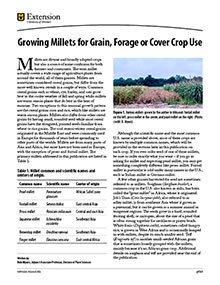
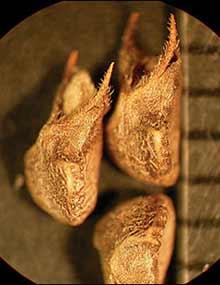
Missouri Weed Seeds, Page 29
Reviewed
Several species of Malvaceae (Mallow family) are among the most common broadleaf weeds in Missouri. These include velvetleaf and prickly sida. Cotton is also a member of this family.
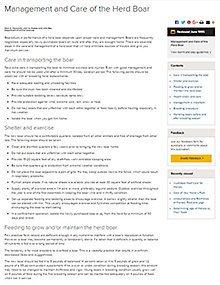
Management and Care of the Herd Boar
Reviewed

Measuring Manure Spreader Uniformity
Reviewed
Learn how to test and adjust manure spreader overlap to ensure even nutrient application and improve crop growth across your fields.
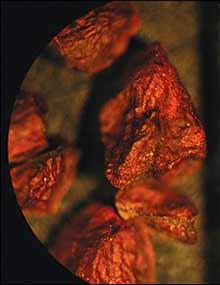
Missouri Weed Seeds, Page 32
Reviewed
Primrose is a common member of Onagraceae (Evening primrose family) with approximately 14 different species present in Missouri.
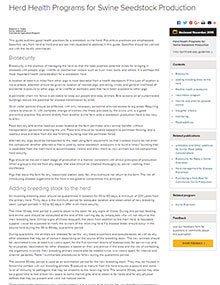
Herd Health Programs for Swine Seedstock Production
Reviewed
This guide outlines good health practices for a seedstock swine herd. Preventive practices are emphasized. Specifics vary from herd to herd and are too individualized to address in this guide. Specifics should be worked out with the herd's veterinarian.
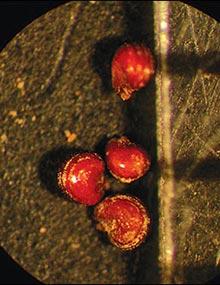
Missouri Weed Seeds, Page 03
Reviewed
Other than carpetweed, only two species of plants in the family Aizoaceae are known to occur in relatively isolated locations in Missouri
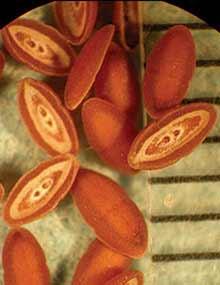
Missouri Weed Seeds, Page 35
Reviewed
Plantaginaceae (Plantain family), known collectively as plantains, has about 11 species in the state.
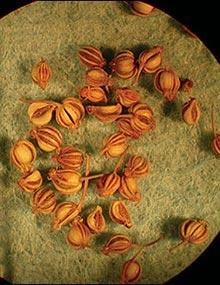
Missouri Weed Seeds, Page 06
Reviewed
Apiaceae (Carron family), also known as the parsley family, is a large family that includes several herbal plants, such as caraway, dill and fennel. It also contains several toxic plants, such as poison hemlock and water hemlock.
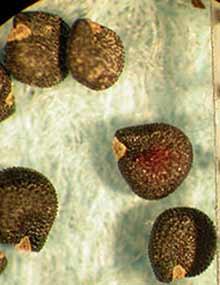
Missouri Weed Seeds, Page 38
Reviewed
Of 20 genera known within Portulacaceae (Purslane famiy), there are only three present in the state. Purslane is the most common among them.
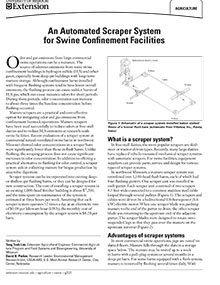
An Automated Scraper System for Swine Confinement Facilities
Reviewed
An automated scraper system reduces odor emissions in swine barns, lowers maintenance costs, and supports biogas production through efficient manure removal.
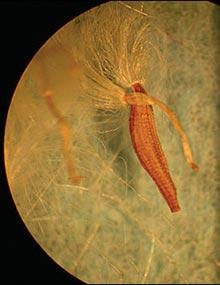
Missouri Weed Seeds, Page 09
Reviewed
Explore the diverse milkweed species in Missouri, featuring detailed seed images with millimeter rulers for accurate size reference.
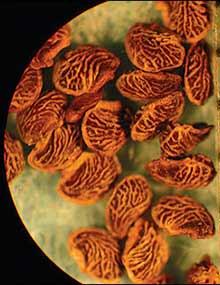
Missouri Weed Seeds, Page 41
Reviewed
Many of the members of Rosaceae (Rose family) are commonly grown as cultivated plants, including rose, apple, pear and strawberry. A notorious member, multiflora rose, is one of the state’s noxious weeds.
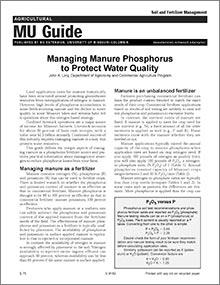
Managing Manure Phosphorus to Protect Water Quality
Reviewed
This guide offers strategies to manage manure phosphorus, reducing runoff and protecting Missouri's water resources.
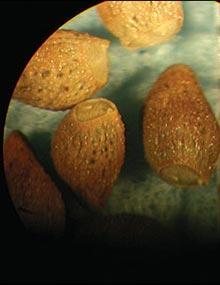
Missouri Weed Seeds, Page 12
Reviewed
Boraginaceae (Borage family) also includes several nuisance plants known as “beggar’s lice” because their fruits readily attach to clothing and other articles.
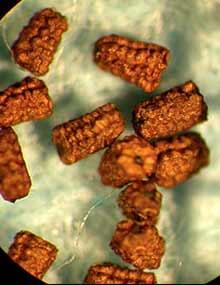
Missouri Weed Seeds, Page 44
Reviewed
Of the nearly 280 genera of Scrophulariaceae (Figwort family), at least 25 are known to be in Missouri. The genera that contain mullein and speedwell are among the most common.
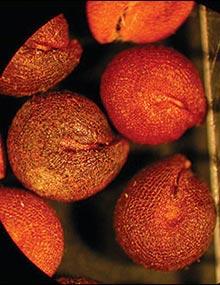
Missouri Weed Seeds, Page 15
Reviewed
Only a few members of Capparidaceae (Caper family), such as spider flower, occur in Missouri.
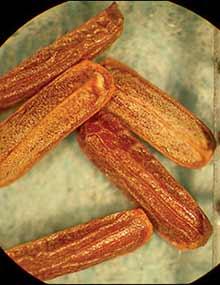
Missouri Weed Seeds, Page 47
Reviewed
Detailed information on the Verbenaceae family, including images of blue and hoary vervain seeds with millimeter scale references.
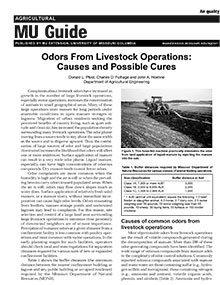
Odors From Livestock Operations: Causes and Possible Cures
Reviewed
Reduce livestock odors by managing manure storage, application methods, and using buffers to minimize odor impact.
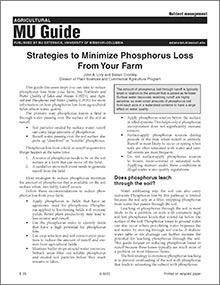
Strategies to Minimize Phosphorus Loss From Your Farm
Reviewed
This guide discusses steps you can take to reduce phosphorus loss from your farm.
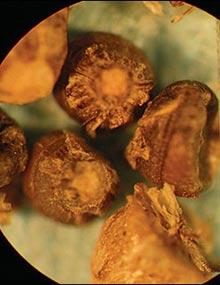
Missouri Weed Seeds, Page 18
Reviewed
At least 18 different Chenopodium genera members, also known as lambsquarters, are present in Missouri. Kochia is also another important member of Chenopodiaceae (Goosefoot family).
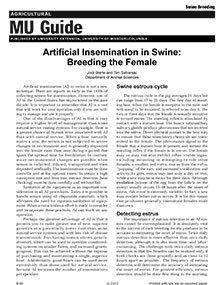
Artificial Insemination in Swine: Breeding the Female
Reviewed
The use of artificial insemination in the U.S has skyrocketed. Visit our website to view our Artificial Insemination in Swine: Breeding the Female article.
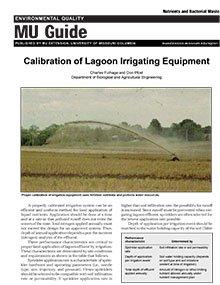
Calibration of Lagoon Irrigating Equipment
Reviewed
This publication provides guidelines for calibrating lagoon irrigation systems to ensure efficient nutrient application and prevent runoff.
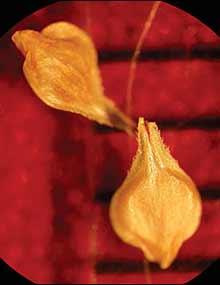
Missouri Weed Seeds, Page 21
Reviewed
Missouri is home to more than 200 species of sedges (Cyperaceae). Agronomically, yellow nutsedge, Cyperus esculentus, is considered to be the most problematic in prevalence of this family of plants.
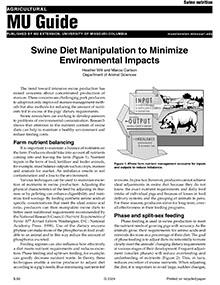
Swine Diet Manipulation to Minimize Environmental Impacts
Reviewed
Guidance on adjusting swine diets—phase feeding, enzyme use, synthetic amino acids—to reduce nutrient waste and lower environmental impacts.